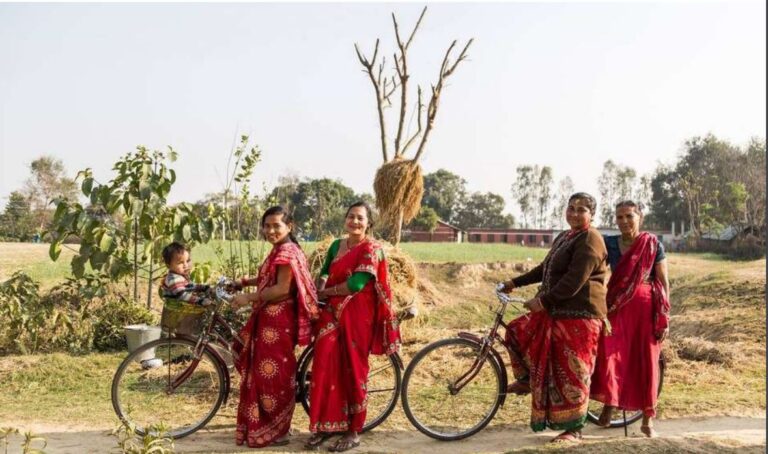

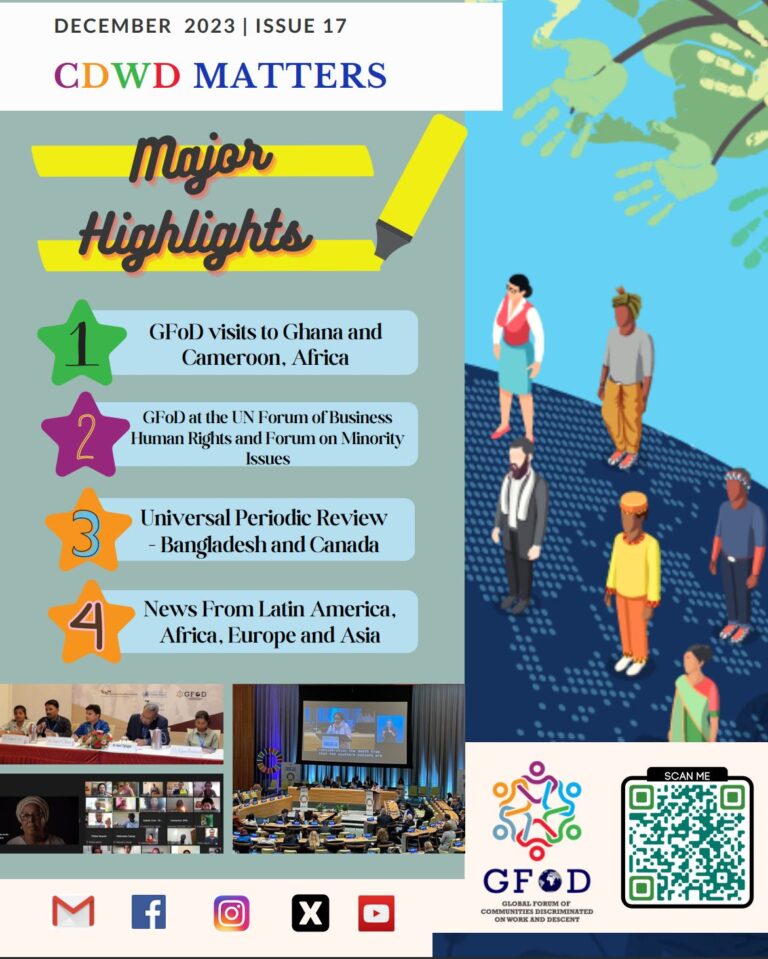
CDWD December Newsletter: Read about our important updates in English, French and Portuguese
December was an important and exciting month for us, and we are glad to present our work in three languages for your perusal. From Global Forum of Communities Discriminated on Work and Descent visits to Ghana and Cameroon in Africa to GFoD at the UN Forum of BusinessHuman Rights and Forum on Minority Issue, we cover…
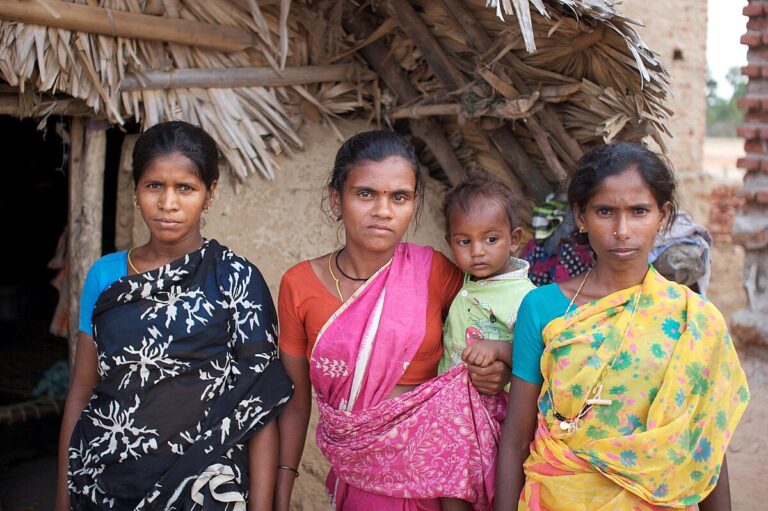
Too poor for rights? Access to justice for poor women in Bangladesh: A case study
This paper will focus on the experience of a select group of rural poor in Bangladesh, who, with the assistance of Nagorik Uddyog (a human rights NGO), have sought justice in the non-formal justice system.
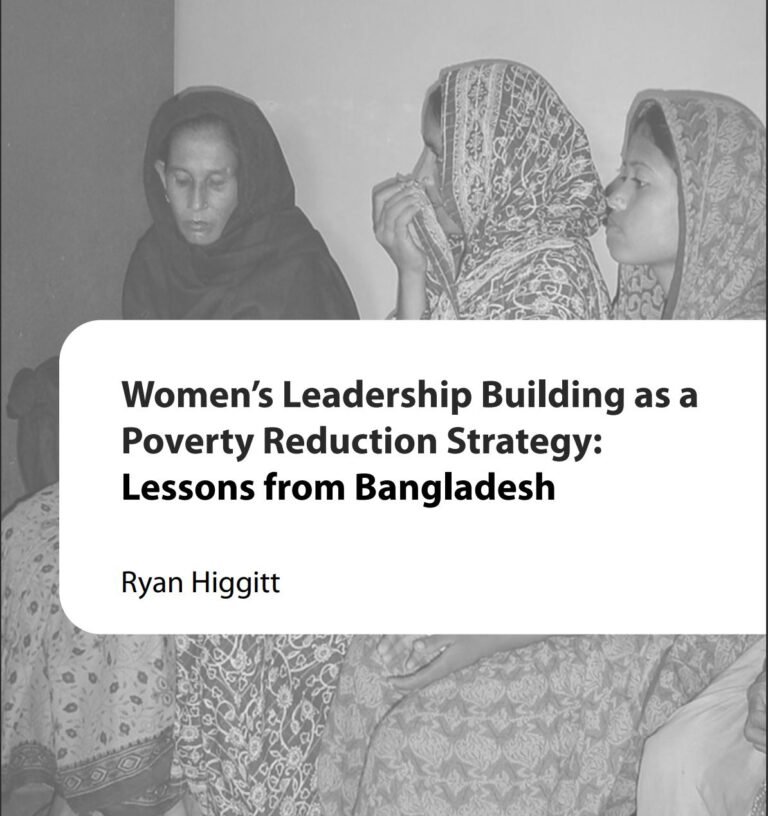
Women’s Leadership Building as a Poverty Reduction Strategy: Lessons from Bangladesh
The World Bank Group (2006) deems gender equality ‘smart economics’ in its GenderAction Plan 2007-2010. However, questions are increasingly being raised about just how muchthe empowerment strategies set down in World Bank and International Monetary Fund endorsed Poverty Reduction Strategy Papers (PRSPs) are actually improving the quality of life of women in less developed countries….
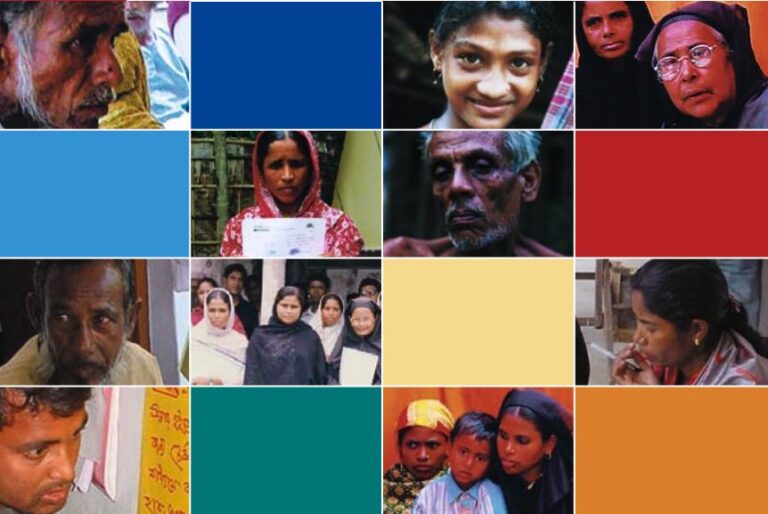
Paving the way to Justice
The report focuses on the activities of Nagorik Uddyog (NU), a non-governmental organization in Bangladesh whose approach offers a model that appears to have a substantial and sustainable impact on justice delivery. It is hoped that the lessons learned from NU’s experience will help guide future work in this area in Bangladesh and elsewhere. The…

